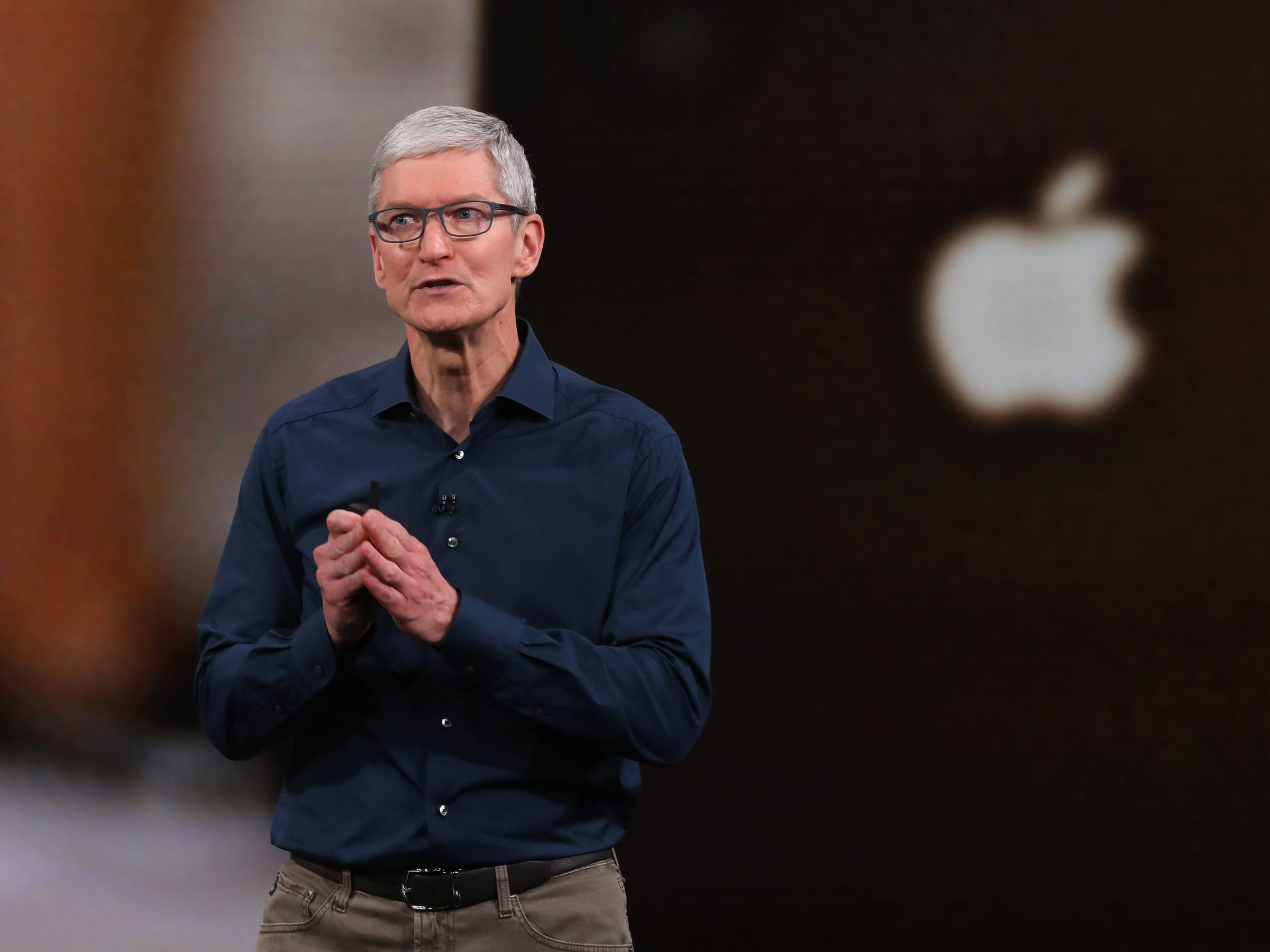
Karl Mondon/Digital First Media/The Mercury News via Getty Images
- Tech columnist Jason Aten calls Apple "the benevolent dictator of the podcast universe."
- Its new creator platform shows it's ready to keep its power from major competitor Spotify.
- Their models are similar, and Apple's new model is also similar to its app developer model.
- See more stories on Insider's business page.
For years, Apple was sort of the benevolent dictator of the podcast universe.
Even though it controlled and managed the directory used by virtually every other podcast app, it never made any attempt to monetize its position.
Now, however, Apple has made what might be the most significant change to podcasts since it first rolled out the ability to download shows to your iPod using iTunes back in 2005.
On Tuesday, Apple said it would allow podcast creators to sell monthly subscriptions from within the Podcasts app. This move signals that the tech giant is ready to take on its major competitor – Spotify – in the race to dominate the podcast industry.
The idea of allowing listeners to pay a monthly fee for bonus or ad-free content isn't new. Many shows already offer this exact type of subscription or "membership."
The biggest difference is that Apple's service will handle all of the moving parts, as opposed to an individual podcaster having to piece together a membership service, unique subscriber feeds, and payment processing.
For a while now, there have been rumors that Apple was working on a way to monetize its unique role in the podcast ecosystem. Those rumors came as Spotify was spending big to build out its own competing ecosystem.
The streaming app spent $235 million in November to buy Megaphone, a hosting and advertising platform. It's also been spending on exclusive shows, most notably paying reportedly more than $100 million for "The Joe Rogan Experience."
This spring, Spotify says it will start testing a subscription service that allows podcast creators to offer exclusive content to listeners who pay a monthly fee. That's different than what most people expected Spotify to do, which is launch a paid service similar to what it offers for music streaming, where users would pay $10 a month to listen to ad-free podcasts or shows that are exclusive to the paid tier.
Their new offering is remarkably similar to what Apple just announced.
Spotify and Apple have battled for years over streaming music.
Spotify has even accused Apple of anti-competitive practices, most recently with the introduction of Apple One, and is a part of the group of developers that has challenged Apple's control over the App Store.
Meanwhile, Apple seemed not to be paying attention to what was happening with podcasts. While Spotify was busy building its platform, Apple mostly left podcasts alone. It continued to support the directory and made updates to the app - even bringing it to the Mac - but did not much else.
Even still, Apple's podcast app has 28 million users. That's impressive considering it built that audience without really even trying. It was only this year that Spotify's efforts finally pushed it over the top, with 28.2 million users.
Now, Apple's essentially turned its Podcasts app into a creator-centric version of the App Store, selling subscriptions to your favorite show instead of your favorite productivity app.
At the same time, it's creating a wall around its own podcast ecosystem in a way it hasn't before. That's certainly a smart move if the goal is to win the fight against Spotify, but it's definitely a departure from the company's hands-off approach that won it so much goodwill with the podcast industry.
"As a podcast creator, I'm very interested in Apple's new Podcast Subscription Service," Stephen Robles, the host of the "AppleInsider Podcast," which recently launched a membership program, told Insider. "This is the first move Apple has made in over 15 years to close the podcast ecosystem with content only available in Apple Podcasts," he added.
Even though it doesn't seem likely that podcast subscriptions are going to be a huge money-maker in the short term, Apple has made growing its services revenue a priority, and podcasts are certainly having their moment. That means there's a big upside to offering an alternative to Spotify.
Apple is rolling out its podcast platform with almost the exact same model it offers app developers.
Apple will charge creators $19.99 to be a part of the program, and will then take 30% of the monthly subscription fee in the first year. The commission drops to 15% in the second year.
The difference is, Apple doesn't appear to be offering podcasters the same deal it offered small businesses when it lowered the commission to 15% for businesses generating less than $1 million in revenue. Surely that would cover almost every podcast that might use Apple's subscription program.
Apple might argue that taking a cut is fair since it's able to make the entire experience frictionless for existing podcast listeners, even if that means they're forced to use Apple's app.
"While listeners may be more likely to subscribe using the in-app button that just charges the card in file with their Apple ID, that exclusive content won't be available in apps like Overcast, Pocket Casts, or Android," Robles said.
Marco Arment, the developer behind the popular Overcast podcast player, highlighted on Twitter the potential that Apple may be about to cut off other podcast apps in favor of its own.
Apple's new interface for creating and hosting a podcast has the option to make a feed public. This is what makes the show available in the API used by other apps. If you don't choose that option, your podcast would only be available in Apple Podcasts, for example.
-Marco Arment (@marcoarment) April 21, 2021
Obviously, Apple's time as the quiet caretaker in the back of the podcast industry is over, though I don't think it intends to upend the ecosystem entirely.
Instead, I think it saw an opportunity to slow the growth of its biggest competitor in the space, while also getting paid for the work it's done over the past 15 years to nurture a vibrant and growing industry.
If nothing else, it shows it's taking podcasting very seriously, even if it's for the first time.
Insider reached out to Apple for comment but didn't immediately receive a response.
